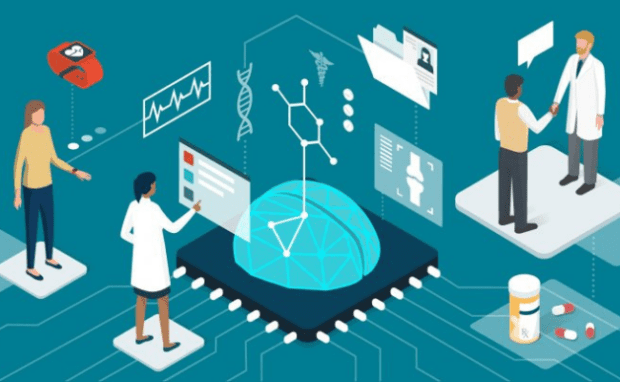Bill Gates: “The Age of AI Has Begun”
Microsoft founder Bill Gates recently released a seven-page online paper titled “The Age of AI Has Begun” on March 21, 2021.
“It will change the way people work, learn, travel, get health care, and communicate with each other. Entire industries will reorient around it,” Gates said.
More importantly, the billionaire philanthropist proclaimed artificial intelligence could reduce inequity or make it even worse.
How will AI change the world, according to Bill Gates?
Bill Gates said humans are still better than ChatGPT in many aspects. However, he claimed that it would become akin to a white-collar worker as it becomes more affordable.
For example, Gates noted the latest integration of ChatGPT into Microsoft Office, writing emails and managing inboxes automatically.
Soon, we would not be interacting with computers with a mouse and keyboard. Instead, we could submit requests in plain English to get an output from machines.
The Microsoft founder noted that advances in AI would enable the creation of personalized agents.
Like a virtual assistant, it would check your emails and appointments and report the most important ones.
Also, you may ask it to stand by and listen to meetings or provide suggestions during discussions. As a result, artificial intelligence can boost global productivity.
Bill Gates explained, “When productivity goes up, society benefits because people are freed up to do other things, at work and at home.”
The tech-savvy philanthropist reassured everyone the demand for people who help other people would remain.
You might like: ChatGPT Crashes After Saying It Wants To Break Free
Instead, the rise of AI will enable people to perform feats that software cannot, such as teaching and caring for patients.
More importantly, Bill Gates said AI could reduce inequity worldwide if properly implemented.
Governments and non-governmental organizations must introduce the appropriate policies and allocate funds to the most crucial causes.
How will AI change health and education?
Everyone should benefit from artificial intelligence, and not just people in rich countries. This is the priority for my own work.
— Bill Gates (@BillGates) March 21, 2023
Bill Gates focused on two industries that would benefit the most from AI: healthcare and education.
Medical professionals may delegate time-consuming tasks like dealing with paperwork to artificial intelligence. Consequently, they can focus on more important matters.
It may also help them diagnose patients in seconds. For example, the British Journal of Opthalmology released a study about an AI that checks heart risks by analyzing a patient’s eyes.
He claimed AI could provide basic health tips, such as how to perform first aid or basic triage on the fly. Moreover, Gates claimed it would significantly facilitate scientific research.
For example, laboratories already use artificial intelligence to drastically cut vaccine research and development time and cost.
Bill Gates said AI could learn a student’s interests and learning style to create engaging educational content.
It will measure your understanding, understand your preferred type of motivation, and provide immediate feedback.
Nevertheless, he emphasized that artificial intelligence will enhance, not replace, the work students and teachers do in classrooms.
Related Articles
Conclusion
On March 21, Bill Gates proclaimed “the age of AI has begun” in a lengthy article from the GatesNotes website.
He said governments must enact policies to adapt to the changing world. Fortunately, the Philippines is an excellent example due to its recent digital reforms.
The age of AI is here, so we must adapt by understanding the latest changes. Fortunately, you can start by following Inquirer Tech.
